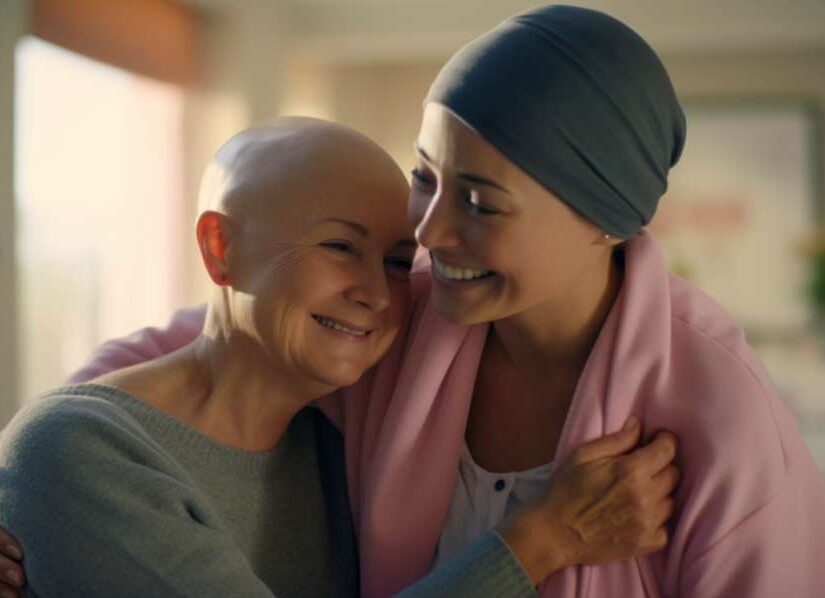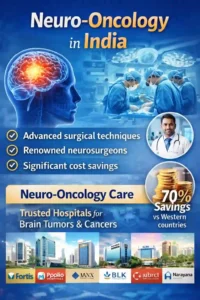Top Cancer Hospitals Worldwide (2025)
When facing a cancer diagnosis, one of the most important decisions you will make is choosing the right hospital. The quality of care, access to innovative treatments, and the expertise of the medical team can all significantly impact your outcome. Therefore, finding the **Top Cancer Hospitals Worldwide** is a crucial step for anyone seeking the best possible treatment. This guide will explore what makes an oncology center truly world-class and highlight some of the leading institutions that are setting new standards in cancer care.
The field of oncology is constantly evolving, with new therapies and technologies emerging at a rapid pace. For this reason, selecting a hospital that is at the forefront of research and clinical trials is essential. Furthermore, the best hospitals often have a multidisciplinary approach, where a team of specialists—including oncologists, surgeons, radiologists, and pathologists—collaborate to create a personalized treatment plan for each patient. In addition, these hospitals also focus on holistic care, addressing not just the disease, but also the patient’s emotional and psychological well-being.
Hallmarks of a World-Class Cancer Hospital
A hospital’s reputation is built on several key factors. First and foremost, look for institutions with a high volume of patients and a history of successful outcomes for your specific type of cancer. High-volume centers tend to have more experienced specialists and more streamlined processes. In addition, the best hospitals are often accredited by international organizations that ensure they meet rigorous standards of care.
Innovative Treatments and Research
The **Top Cancer Hospitals Worldwide** are typically leaders in research and innovation. This means they offer access to cutting-edge treatments that may not be available elsewhere, such as:
- Immunotherapy: harnessing the body’s immune system to fight cancer.
- Targeted therapy: medications that target specific genes and proteins involved in cancer growth.
- Proton therapy: a precise form of radiation that minimizes damage to surrounding healthy tissue.
Likewise, they are often involved in numerous clinical trials, providing patients with opportunities to benefit from the latest medical breakthroughs. Furthermore, a commitment to research ensures that the hospital stays ahead of the curve in a rapidly changing field. The National Cancer Institute provides excellent information on cancer treatments.
Leading Cancer Hospitals by Region
While many renowned cancer centers are in the United States, excellence in oncology is truly a global phenomenon. Patients are increasingly looking for high-quality care in Europe, Asia, and the Middle East. For example, some of the most advanced hospitals are located in countries like Germany and Turkey, which are known for their state-of-the-art technology and experienced medical teams. Similarly, countries like Iran and India offer specialized and affordable cancer care, making them attractive options for medical tourists.
When searching for the **Top Cancer Hospitals Worldwide**, consider a variety of factors beyond location. It’s important to look at a hospital’s specific expertise in your type of cancer. For instance, a hospital that excels in treating breast cancer may not be the best choice for a patient with a rare form of blood cancer. Therefore, always research the specific department or specialist you need.
Our internal links include information on specific regional treatments. You can learn about cancer treatment in Turkey and lung cancer treatment in Iran.
Key Considerations for Patients and Their Families
Choosing a hospital involves more than just looking at a list of names. It requires a careful evaluation of what is most important to you. Firstly, you should consider the cost of treatment. In addition, you must consider the logistics of travel and accommodation, and the support services available for international patients. Many leading hospitals have dedicated international patient offices that can help with everything from visa applications to language interpretation. This level of support can be invaluable, especially when you are far from home.
Evaluating Hospital Rankings and Reviews
While hospital rankings from publications like Newsweek or U.S. News & World Report can be a good starting point, they should not be your only guide. In fact, these lists often rank institutions based on a wide range of criteria that may not be relevant to your specific needs. Instead, look for information from authoritative sources. For example, the World Health Organization and the European Society for Medical Oncology offer valuable data and resources. Furthermore, patient testimonials and success stories can provide a more personal perspective on the quality of care.
Consider these factors and you can narrow down your search for the **Top Cancer Hospitals Worldwide**. A hospital’s patient-centered approach is as important as its clinical excellence.
The Role of Medical Tourism in Cancer Treatment
For many people, medical tourism provides an opportunity to access world-class cancer care that may be more affordable or more readily available than in their home country. For instance, a patient in a country with long waiting lists might find immediate access to a specialized surgeon abroad. Similarly, an individual with a specific type of cancer might seek out a hospital that has a unique treatment protocol or is a leader in a rare form of therapy.
Medical tourism has become a professional and organized field. As a result, companies like W Med Tour specialize in connecting patients with top-tier hospitals and coordinating all aspects of their treatment journey. This includes everything from initial consultations and travel arrangements to post-treatment follow-up. Using such a service can significantly reduce the stress and uncertainty of seeking medical care abroad.
For more insights on medical tourism, you can read our other articles like Breast Cancer Treatment in Turkey and Hemato-Oncology Treatment in Iran.
Comparison of Treatment Features
| Feature | Top-Tier Hospital | Standard Hospital |
|---|---|---|
| Technology | Advanced, cutting-edge equipment (e.g., robotic surgery) | Standard, conventional technology |
| Clinical Trials | Actively involved in numerous trials and research | Limited or no participation in clinical trials |
| Multidisciplinary Team | Dedicated team of specialists for each patient | Primary care physician-led, with limited collaboration |
| Patient Support | Comprehensive services for international patients | Basic administrative support |
| Wait Times | Often shorter for specialized procedures | Can have significant waiting lists |
| Cost | Can be higher, but may offer more effective treatment | Generally lower, but may not provide specialized care |
Final Thoughts on Choosing Your Cancer Hospital
The decision of where to receive cancer treatment is a life-altering one. It is not just about finding the **Top Cancer Hospitals Worldwide**, but about finding the right one for you. This means looking at a hospital’s expertise, technology, and patient-centered care philosophy. Above all, you need to feel confident and supported by your medical team and the hospital’s staff.
We understand that navigating these options can be overwhelming. Therefore, we encourage you to use our platform, W Med Tour, as a starting point. Our network includes some of the world’s most reputable cancer hospitals and specialists. We can help you find a doctor and facility that meet your specific needs and help you every step of the way. Do not let the burden of a cancer diagnosis stop you from seeking the best care. Take the first step toward a healthier future.
For more information on cancer treatment, you can visit the CDC or the WHO. Both offer excellent, authoritative resources.
Frequently Asked Questions
A world-class cancer hospital is distinguished by its innovative treatments, a multidisciplinary team of specialists, participation in clinical trials, state-of-the-art technology, and a strong focus on patient-centered, holistic care.
Clinical trials are extremely important as they provide access to new, experimental treatments that may be more effective than standard therapies. They are often a patient’s best option when conventional treatments have been exhausted.
Traveling abroad for cancer treatment is safe if you choose an accredited hospital with a strong international patient support system. Look for hospitals that are recognized by international bodies and have a proven track record of successful outcomes.
A multidisciplinary team consists of various specialists, including oncologists, surgeons, radiologists, and pathologists, who work together to create a comprehensive and personalized treatment plan. This collaborative approach ensures that all aspects of the disease are addressed.
Most top cancer hospitals offer remote second opinion services where you can send your medical records for review. This can provide peace of mind and help you make an informed decision about your treatment plan without the need to travel immediately.
Yes, the cost of cancer treatment varies significantly by country and hospital. Some countries offer high-quality care at a fraction of the cost found in other regions, making them a popular choice for medical tourists.
The choice of treatment depends on the type, stage, and location of your cancer, as well as your overall health. Your medical team will discuss the pros and cons of each option, such as surgery, chemotherapy, radiation, or targeted therapy, to create the best plan for you.
Proton therapy is a highly precise form of radiation therapy that uses protons instead of X-rays to target cancer cells. It delivers a lower dose of radiation to surrounding healthy tissue, which can reduce side effects, especially for tumors near vital organs.
An oncologist is a doctor who specializes in the diagnosis and treatment of cancer. A hemato-oncologist is a subspecialist who focuses specifically on cancers of the blood, such as leukemia, lymphoma, and multiple myeloma.
Many top hospitals have dedicated international patient offices that provide a range of services, including language translation, visa assistance, travel arrangements, and accommodation booking. They help ensure a smooth and comfortable experience.
To get a quote, you will need to provide your medical records, including your diagnosis and any previous treatment history, to the international patient department of the hospital. They will review your case and provide an estimated cost for your treatment plan.
Yes, many hospitals offer virtual consultations with their specialists. This allows you to speak with a doctor, ask questions, and discuss your treatment options before you commit to traveling for care.
Look for accreditation from recognized international organizations like the Joint Commission International (JCI). This certification indicates that the hospital meets a high standard of patient safety and quality of care.
Targeted therapy is a type of cancer treatment that uses drugs to target specific genes and proteins that help cancer cells grow and spread. Because it focuses on specific pathways, it can be more effective and have fewer side effects than traditional chemotherapy.
A tumor is a solid mass of abnormal tissue, which can be either benign (non-cancerous) or malignant (cancerous). A cyst is a sac or pocket in the body that can be filled with fluid, air, or other material, and is typically benign.
Immunotherapy is a treatment that uses your body’s own immune system to fight cancer. It works by stimulating the immune system to recognize and attack cancer cells, which it might not have been able to do on its own.
While a healthy lifestyle cannot guarantee cancer prevention, it can significantly reduce your risk. This includes maintaining a healthy weight, eating a balanced diet, exercising regularly, and avoiding smoking and excessive alcohol consumption.
Common side effects of chemotherapy can include fatigue, nausea, hair loss, and an increased risk of infection. Your medical team will provide medications and support to help manage these side effects.
Cancer recurrence is when cancer returns after a period of remission. It can come back in the same place as the original tumor or in a different part of the body. Monitoring and follow-up care are crucial for early detection.
Yes, there are hospitals and centers that specialize in treating childhood cancers. These institutions have pediatric oncologists and a staff that is specially trained to care for the unique needs of children and their families during treatment.
Technology plays a crucial role by enabling more precise and less invasive procedures. This includes advanced imaging for accurate diagnosis, robotic-assisted surgery for greater precision, and targeted radiation therapy that minimizes harm to healthy tissue.




